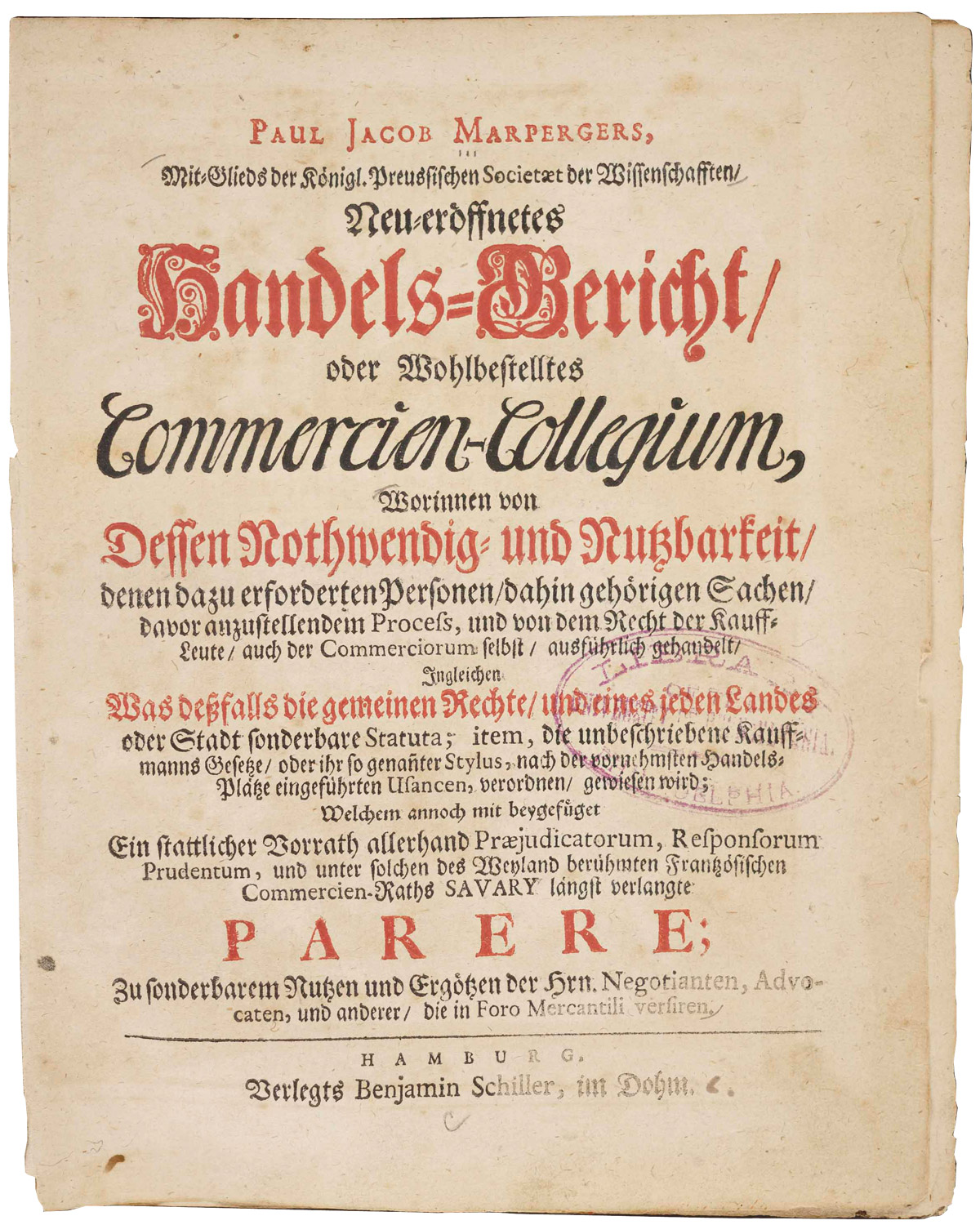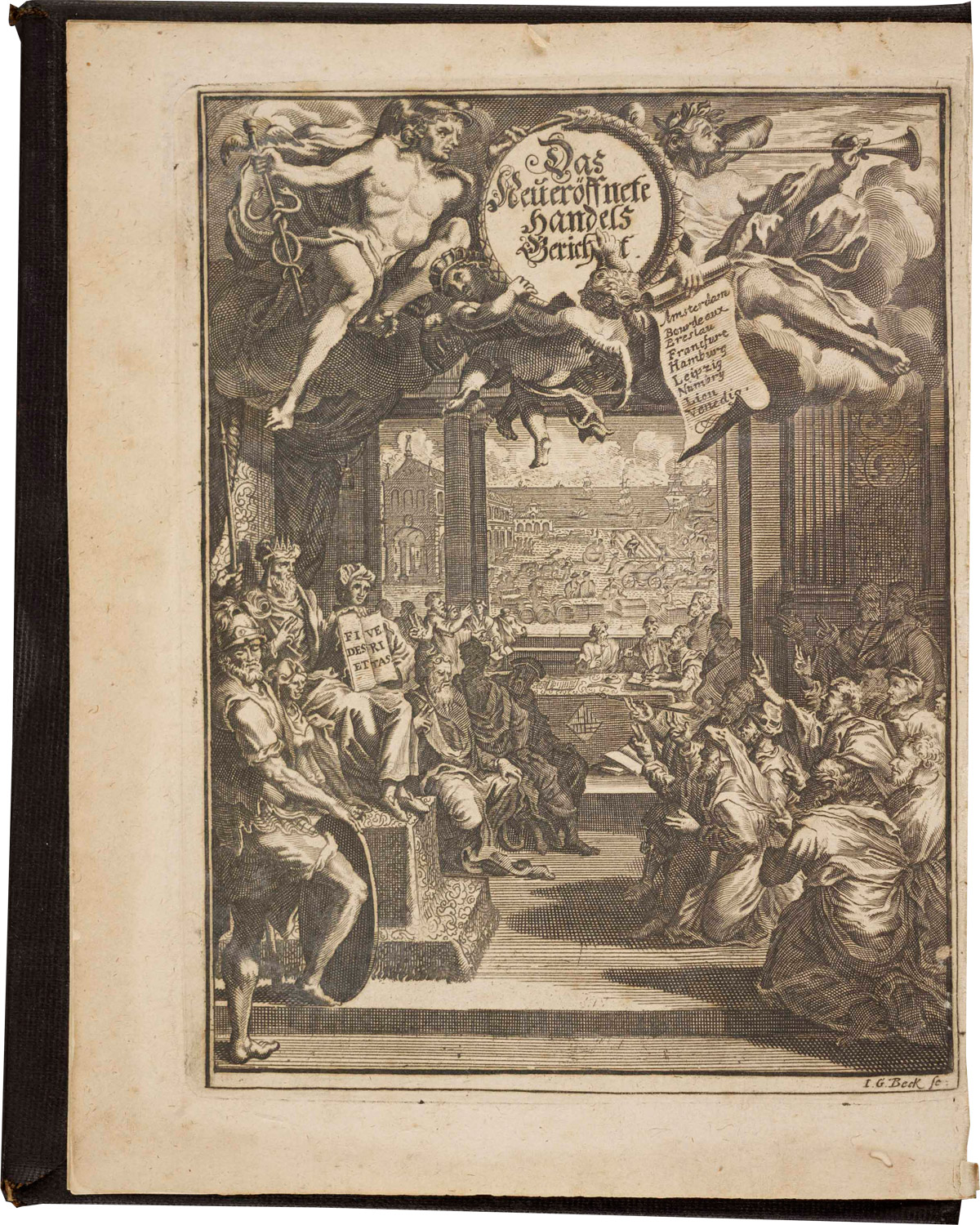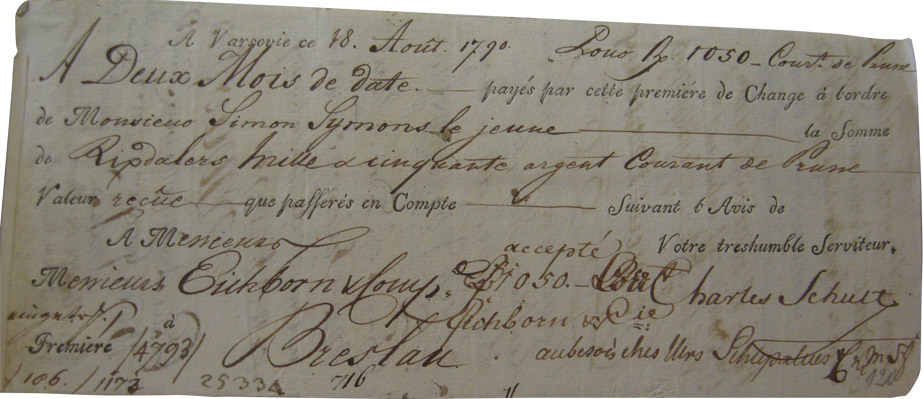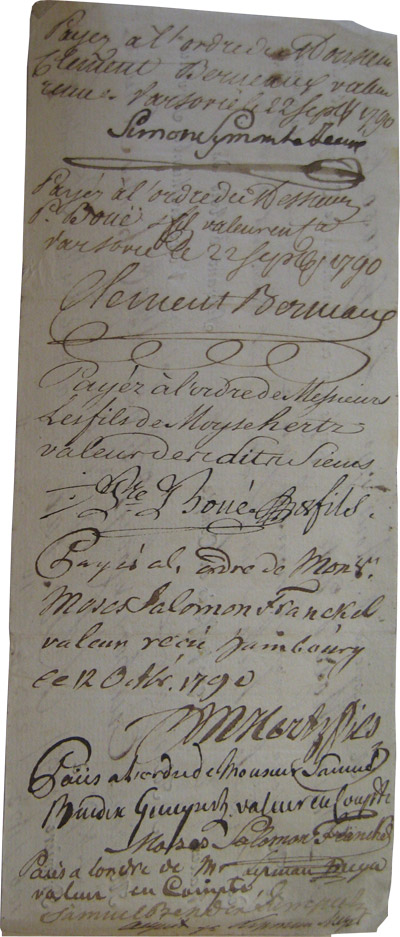This is the front page of Paul Jacob Marperger's work on the usefulness and duties of the newly-founded commercial council in Prussia. Marperger (1656-1730) was the son of a German officer but took an apprenticeship with a French trading house. He became one of the first German writers on issues of mercantilism, cameralism, and commercial practices. In this and numerous other works he discussed the importance and the obligations of the mercantilist state. He examined the mechanisms of commerce, commercial courts, different commercial laws and regulations, bills of exchange and a wide array of similar topics. In 1708, he became a member of the Prussian Society of the Sciences and in 1724, he was appointed to the Royal Court and Commerce Council of Poland and the Electorate of Saxony.
The title page is accompanied by a copper engraving that depicts the members of the commercial council holding an open book with the inscription Fides et Veritas [Faith and Truth] across from a group of merchants who bring forward complaints and appeals to the council. In the background, a number of merchants are sitting around a table with different writing utensils, probably drawing a contract, while outside the window one recognizes the sea with incoming ships, a covered market building, an open market space, merchants, coaches, as well as barrels and packs of merchandize. A scroll on top of the picture names some of the most important places of commerce in Europe: Amsterdam, Bordeaux, Breslau, Frankfurt, Hamburg, Leipzig, Nuremberg, Lyon, and Venice. While Jewish merchants do not figure prominently in Marpergerb's work, they took a very active part in the commerce of early modern Europe and were regular visitors of fairs. Specific commercial courts became more and more a necessity with the growing volume of trade and the increase of complicated credit actions that were facilitated through bills of exchange. In Leipzig, which held one of the most important fairs, a commercial court was founded in 1682 because the municipal courts were overwhelmed with the amount and intricacy of the cases brought before it.
Though bills of exchange have existed since the Middle Ages, they became more suitable for long-distance trade and the provision of credit, which both were closely intertwined, in the early modern period with the general acceptance of the endorsement on the back of the bill. This allowed circulating a bill of exchange as currency which made bill transactions more flexible. This bill of exchange was issued in Warsaw in 1790 by a non-Jewish merchant to the Jewish banker Simon Symons from Amsterdam. It could be redeemed two months later from the Christian banking house Eichborn & Co. in Breslau.
On the back, one can see how it went through the hands of six different Christian and Jewish merchants and bankers and from Warsaw to Hamburg and Berlin before the bill was met in Breslau. However, the use of bills of exchange and especially their wide circulation had to be based on trust since everyone in the chain who paid (in cash or goods) had to rely not only on the previous endorser but on the original drawer or on every person involved in the chain of circulation. False bills of exchange were not a rarity and it was not uncommon that an original drawer had no credit with the payer. Thus, commercial courts that were competent to deal with complicated matters of bills and commerce were regarded as crucial by Marperger and others.



